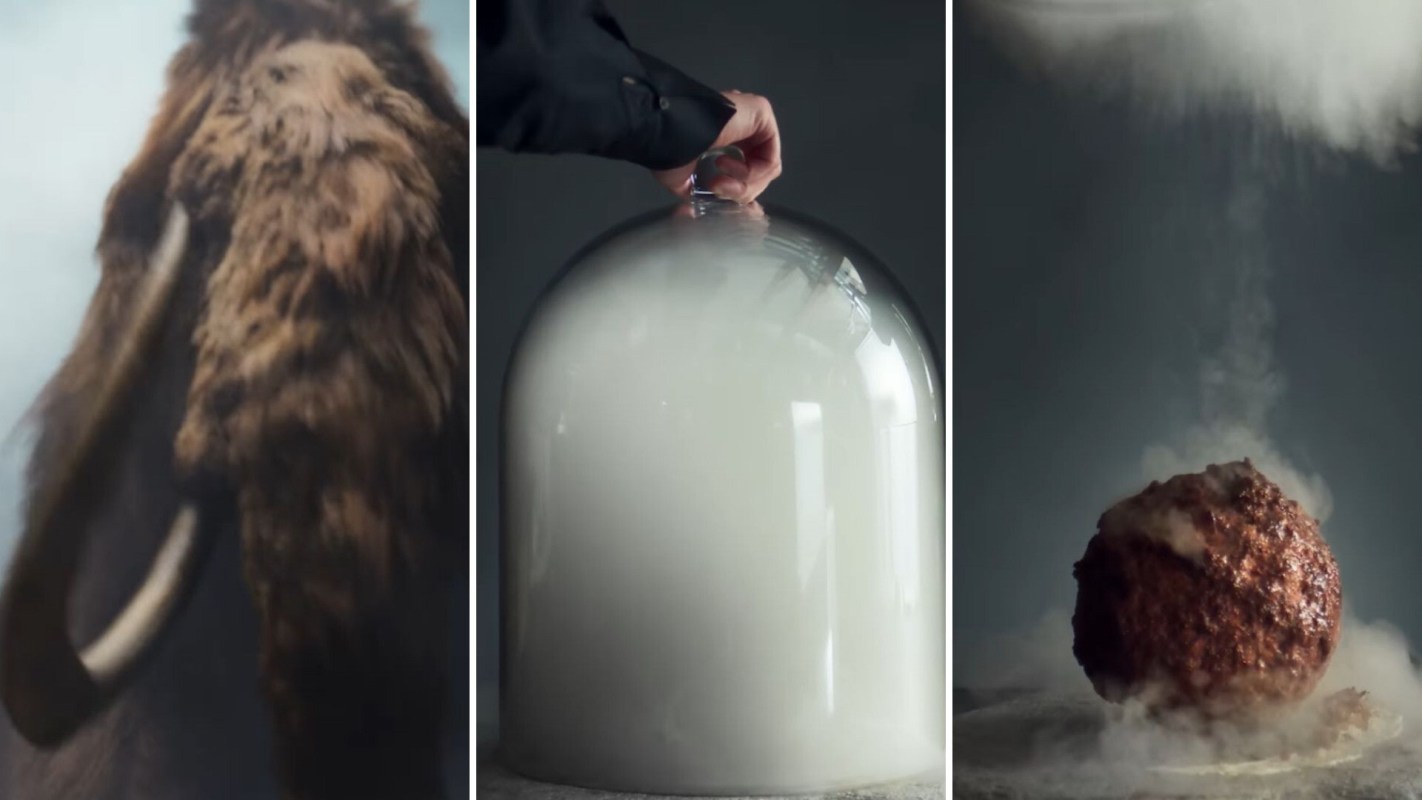Have you ever wondered what a woolly mammoth might taste like?
Although the giant mammals went extinct more than 10,000 years ago, modern science has now made it possible for humans to experience the same types of meat that our cavepeople ancestors had for dinner.
An Australian company recently grew a mammoth meatball in a lab, using publicly available genetic information. The meatball is currently on display in a science museum in Amsterdam.
Unfortunately, for all the exotic meat enthusiasts out there, the first-of-its-kind mammoth meatball was made for display, not consumption — not even its creators have tasted it — and it likely will not be on the market any time soon.
Instead, it is meant to bring attention to the fledgling "cell-cultivated meat" industry, which could lead to a future where meat is grown in laboratories rather than farmed from actual animals.
If regulators allowed cultivated meat to be sold to the masses — currently, it is only legal in Singapore — that could go a long way toward cutting down on the animal cruelty involved in factory farming, and it could be a big win for the planet as well.
Livestock farms currently account for 70% of the U.S.'s ammonia pollution, which poisons the soil and surrounding waterways. That's in addition to producing massive amounts of planet-warming gases such as methane and nitrous oxide.
There is good news on the horizon for the cultivated meat industry, however, beyond just the mammoth meatball. The FDA has taken the first steps toward approving it for sale, and a cultivated meat factory is currently under construction in North Carolina, with investors signaling that they expect full approval to come through before long.
And in case you were wondering, Vow, the company behind the mammoth meatball told the AP that although no one has tasted it, the smell of it cooking was somewhat similar to crocodile meat.
"This is not an April Fools joke," said Tim Noakesmith, Vow's founder said of the meatball, which was announced curiously close to April 1. "This is a real innovation."
Join our free newsletter for easy tips to save more, waste less, and help yourself while helping the planet.








